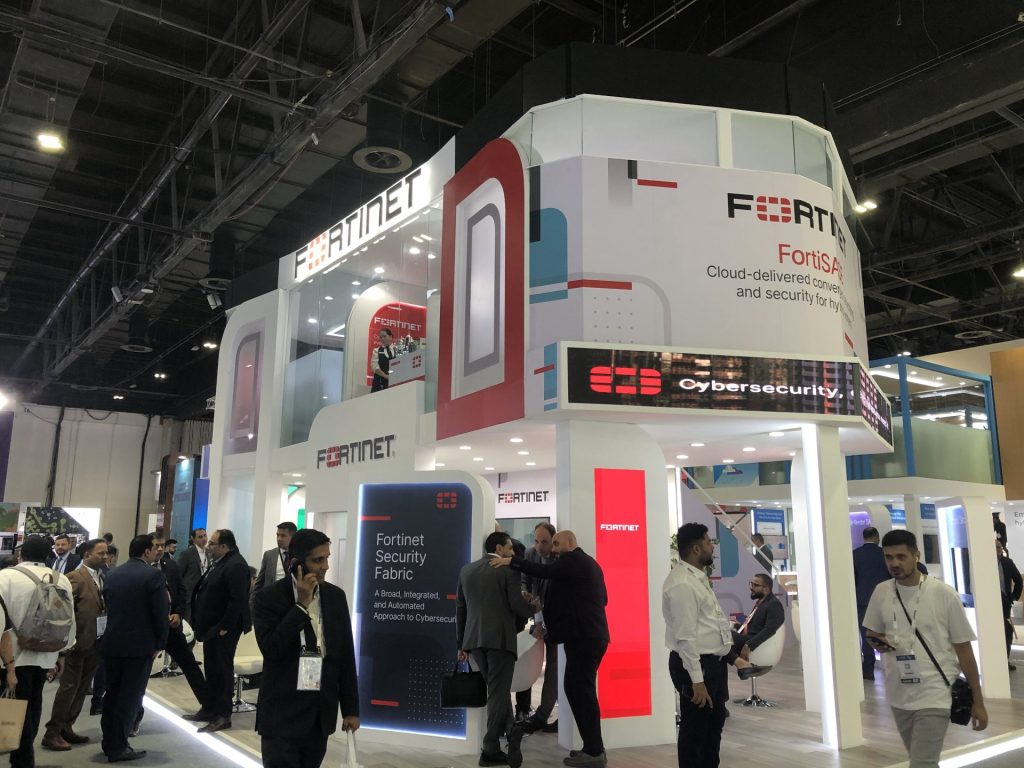Middle East region seen as having robust advanced cybersecurity strategies

Fortinet abides by know-the-enemy strategy in cybersecurity
Alain Sanchez, CISO (EMEA) at Fortinet, a California-headquartered global leader in enterprise security and cybersecurity solutions, sheds light on the company’s innovative approach to cybersecurity, its commitment to leveraging AI, and its focus on addressing the unique needs of the Middle East region in the rapidly evolving field of cybersecurity.
Excerpts from the interview, conducted at GITEX Global – the largest tech and startup event in the world – held at Dubai World Trade Centre from October 16-20, 2023:
What role does the Middle East play in the cybersecurity landscape?
The Middle East is ahead of the game in rolling out advanced cybersecurity strategies. The region, especially Dubai, has demonstrated a solid commitment to cybersecurity and has visionary leaders driving the adoption of advanced security measures.
Fortinet views GITEX Global as a window to the future of cybersecurity and values the engagement of decision-makers from this region.
What are the specific cybersecurity pain points of Fortinet’s customers in the Middle East?
Our customers in the Middle East are increasingly conscious of corporate social responsibility, including gender equity and safeguarding critical infrastructures.
Fortinet works closely with critical infrastructure organisations in the region, like the Dubai Police and the Dubai Electricity and Water Authority, to ensure their cybersecurity needs are met.
What did Fortinet highlight at GITEX Global this year?
At GITEX Global this year, Fortinet emphasised its holistic approach to cybersecurity, called the “cybersecurity fabric.” This approach integrates cybersecurity across various domains, including the core, the cloud, the edge, and the firewall.
Fortinet believes in the importance of a fully integrated expertise to address cybersecurity challenges effectively. We have also recently partnered with Google to enhance security for remote and corporate-based workers, providing over 100 access points using the Google platform.

Can you elaborate on Fortinet’s newly unveiled compact router?
Indeed, Fortinet has introduced a compact and versatile router designed to be rugged and capable of handling various scenarios. It has 3G and 4G capabilities, functioning as a switch, firewall, and access point.
This device is intended for use in industrial environments and even military vehicles due to its durability and robust design. It is a significant innovation from Fortinet.
What are the key parameters that drive innovation at Fortinet?
The ever-increasing sophistication of cybersecurity threats drives Fortinet’s innovation. We focus on staying ahead of the curve and heavily invest in artificial intelligence (AI) and machine learning.
Fortinet has more patents [1,285 global patents as of June 30, 2023] in these fields than its competitors. Fortinet is passionate about technology and innovation and strives to provide cutting-edge solutions.
How is Fortinet leveraging AI in the field of cybersecurity?
Fortinet places a significant emphasis on AI and machine learning. We utilise AI to automate and enhance security operations, freeing human resources for more creative tasks.
AI is used to analyse and detect anomalies in network behaviour, helping identify potential security breaches. This approach is critical today, where threats are becoming more sophisticated.
What does Fortinet offer to support the development of digital cities?
Fortinet recognises that everything in today’s world is becoming digital. We provide solutions to ensure the fourth industrial revolution is implemented safely and securely.
With the speed of digital transformation, Fortinet ensures that security keeps pace, making the digital world a safer place for critical infrastructures.
Given the rising global cybercrime statistics, how is Fortinet addressing the evolving threat landscape?
Fortinet’s approach is to know the enemy. We have a team of over 600 passionate cybersecurity experts who continuously scrutinise and understand threats using AI.
Our technology learns and adapts to detect and protect against threats, ensuring the safety of digital infrastructures.
How does Fortinet respond to the trend of data localisation within geographical boundaries?
Fortinet supports freedom of choice when it comes to data localisation. Cloud technology remains essential, but legal requirements may necessitate data repatriation.
Fortinet’s solutions allow organisations to choose their cloud providers and quickly adapt to changing requirements, ensuring the security of their data.

Can you elaborate on the concept of AI versus AI in cybersecurity?
AI versus AI is already a reality in the cybersecurity field. Cyber attackers use generative AI, and security providers like Fortinet use AI to detect and defend against these attacks.
Fortinet’s AI capabilities continuously adapt to the evolving threat landscape, ensuring security remains effective.
How important is the Middle East region to Fortinet’s growth and innovation?
The Middle East is a vital region for Fortinet’s growth and innovation. We have witnessed remarkable growth in both employees and partners in the region.
The Middle East is known for its forward-thinking cybersecurity strategies. Fortinet continues to invest in the region to ensure that its solutions meet the unique needs of Middle Eastern organisations.
In a world where the cybersecurity landscape is rapidly evolving, how does Fortinet ensure its customers stay secure and up-to-date?
Fortinet emphasises the importance of training and education. We provide free training platforms to ensure cybersecurity professionals are well-equipped to manage their organisations’ security. Fortinet’s technical account managers work closely with customers to guide them through the complexities of cybersecurity, ensuring their systems stay up-to-date and secure.
Fortinet collaborates with Google Cloud for global SASE PoPs rollout
Fortinet is deploying its SASE Points-of-Presence (PoPs) to new locations through a new partnership with Google Cloud.
The partnership, made public on October 16, 2023, sees Fortinet leveraging Google Cloud’s global network edge locations closest to customers’ regions of presence and delivering dedicated interconnect and 99.99% service availability to accelerate the expansion of Fortinet’s Universal SASE solution.
SASE is a critical architecture for enterprises to connect their hybrid workforces securely. A robust network of SASE PoPs that are scalable and globally available is crucial to delivering a superior user experience while enabling a solid security posture.
Michael Xie, Founder, President, and Chief Technology Officer of Fortinet, said: “By leveraging Google Cloud, Fortinet Universal SASE is even better positioned to serve a more extensive global footprint, ensuring that customers can seamlessly connect and secure their hybrid workforces to critical applications.
“This partnership expands our global POP resources and accelerates customer adoption of Fortinet’s Universal SASE solution. Because our SD-WAN solution is natively integrated with our SASE offering, Fortinet’s global SD-WAN customers now have an even broader ability to easily adopt integrated cloud-delivered security to implement a comprehensive Universal SASE solution,” Xie added.
Muninder Sambi, Vice President and GM of Networking at Google Cloud, noted: “Organisations worldwide rely on the Google Cloud for critical networking and access.
“Our expanded partnership with Fortinet can enable high uptime for customers looking to support their hybrid workforces with Fortinet’s SASE solution, along with the advantages of using Google Cloud’s Cross-Cloud Network, which include lower costs and improved application experiences,” Sambi concluded.
Featured image: Fortinet stand at GITEX Global 2023. Image: Arnold Pinto













